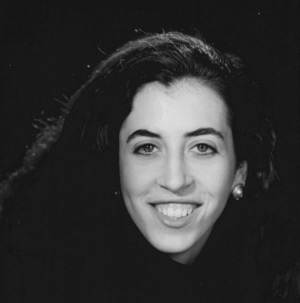“Pia is an inspirational and well-respected theologian and leader,” said Bishop Vann, who presided at the College’s Convocation ceremonies in 2013. “We are blessed as a Diocese to benefit from her expertise, passion, and faith. I look forward to the many gifts that she will bring to the people of Orange.”
An ethicist and theologian, Dr. de Solenni is an expert on life issues, issues relating to women’s health, the new feminism, and culture. After graduating from Thomas Aquinas College, she earned a Sacred Theology Baccalaureate from the Pontifical University of St. Thomas Aquinas (Angelicum) and a Sacred Theology Doctorate, summa cum laude, from the Pontifical University of the Holy Cross in Rome. In 2001 His Holiness Pope John Paul awarded Dr. de Solenni the Prize of the Pontifical Academies for her groundbreaking dissertation — an analysis of feminist theories in the light of St. Thomas Aquinas’ teachings. (Fellow graduate Dr. John R. Mortensen (’97) would become only the second North American to win this same prize in 2010.)
Dr. de Solenni has published articles in The Wall Street Journal Europe, The Washington Post, National Catholic Reporter, Our Sunday Visitor, and National Review Online; and she appeared on MSNBC, Hardball with Chris Matthews, The O’Reilly Factor, CNN, and ABC News, among others. She also appears regularly on the Catholic Answers Live radio program.
In February 2007, Dr. de Solenni was appointed by U.S. Secretary of State Condolezza Rice as a citizen member of a delegation to the United Nation’s Commission on the Status of Women. The focus of the conference was the “girl child.” She says of her appointment, “I gave input where I could, and I observed the proceedings closely. It was an eye-opening experience to see how ideological and political countries can be. The United States attempted to introduce two resolutions — one on pre-natal and post-natal sex selections (e.g. abortion and female infanticide), the other on forced and early marriage. Based on a deep distrust of the United States because of a belief that it would ban all abortions if allowed (I wish it were so easy!), the first resolution never even made it to the floor, while the second was hotly contested by countries at opposite ends of the spectrum, some because their religious law allows for forced marriage.”
Dr. de Solenni’s time at the United Nations convinced her of the need for people with good formation to engage in political life. “While it’s tempting to want to ignore it,” she says, “we can only blame ourselves if we absent ourselves from political life and it yields destructive policies.”
This is why she is grateful to her alma mater for the formation she received there. “I am glad to see some of my fellow alumni working in the public arena,” she adds, “and I hope that more graduates of the College will be interested in applying their formation to more public and professional careers. In particular, I hope we will see more women from the College taking on more public roles in ‘every aspect of society.’ Naturally, one’s family comes first, but some women are both able and willing to take on public roles at different times in their lives. We have been given so many talents, it would be a shame to hide them from ourselves, our families, and our communities, as if we could hide them from God.”
When asked about Pope Benedict XVI’s understanding of the role of women, Dr. de Solenni recalls, “When he was head of the Congregation for the Doctrine of the Faith, then-Cardinal Ratzinger published a document titled On the Collaboration of Men and Women in the World, in which he specifically states that women have a role in every aspect of society. Just this past February, he addressed a conference of the Pontifical Council for the Laity on the anniversary of the publication of his predecessor’s apostolic letter Mulieris Dignitatem saying, ‘God entrusts to women and to men, according to the characteristics that are proper to each, a specific vocation in the mission of the Church and in the world.’”
While is clear to Dr. de Solenni that not all women will do the same things or be active in all spheres of life, she nevertheless believes that the contributions of women are important in each one. “If we leave women out,” she explains, “we leave out part of what it means to be human. Even our understanding of the Church requires both man and woman: bridegroom and bride.”
“It seems to me,” she continues, “that we have spent a lot of time trying to prove that women and men can do the same things. Well, now we know that men and women can do just about all of the same things. So, instead of talking about doing, I hope the focus is shifting to a discussion of being. We need to talk about what being a man or a woman contributes to what we do. Ultimately, it is a question of developing our understanding of metaphysics as it applies to the human person.”








